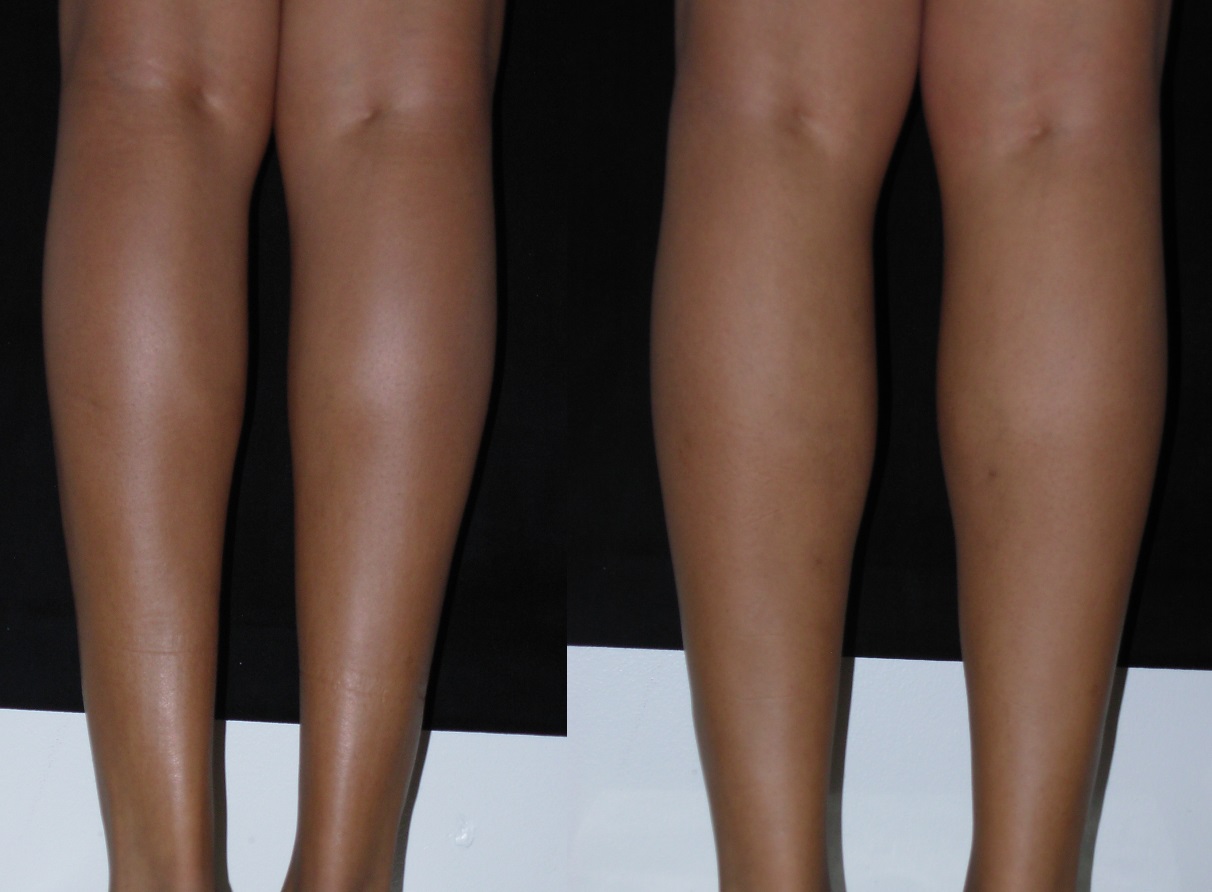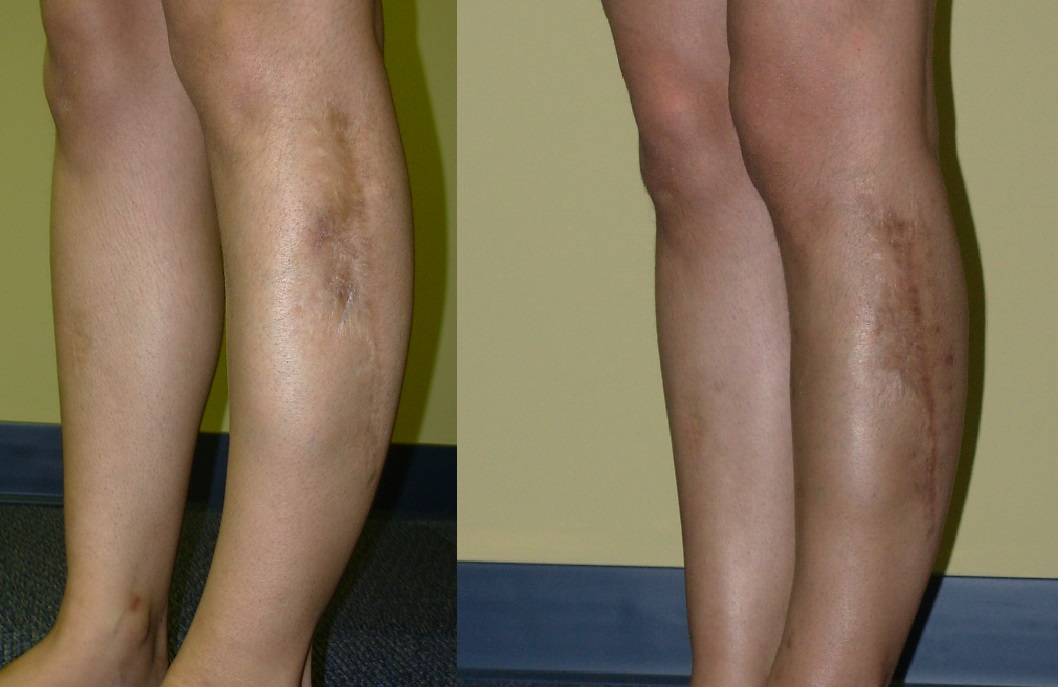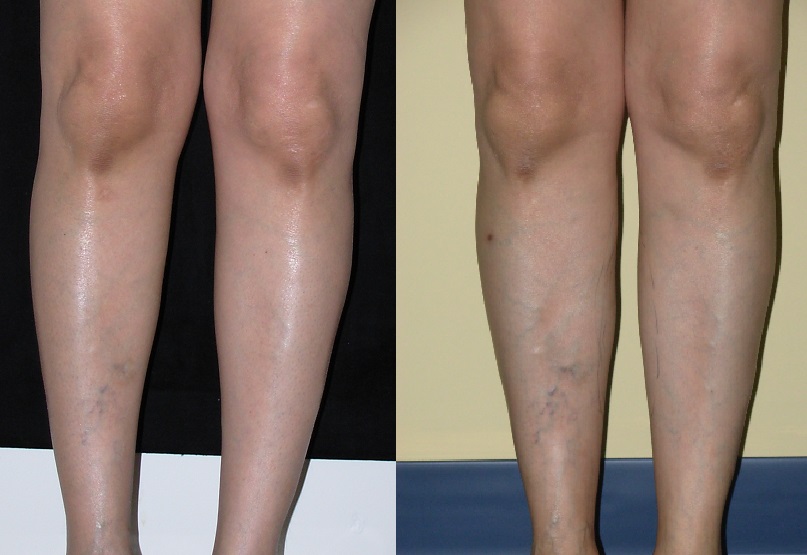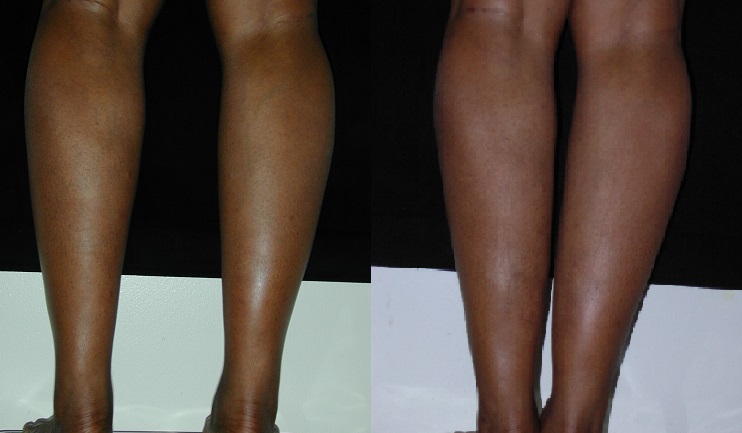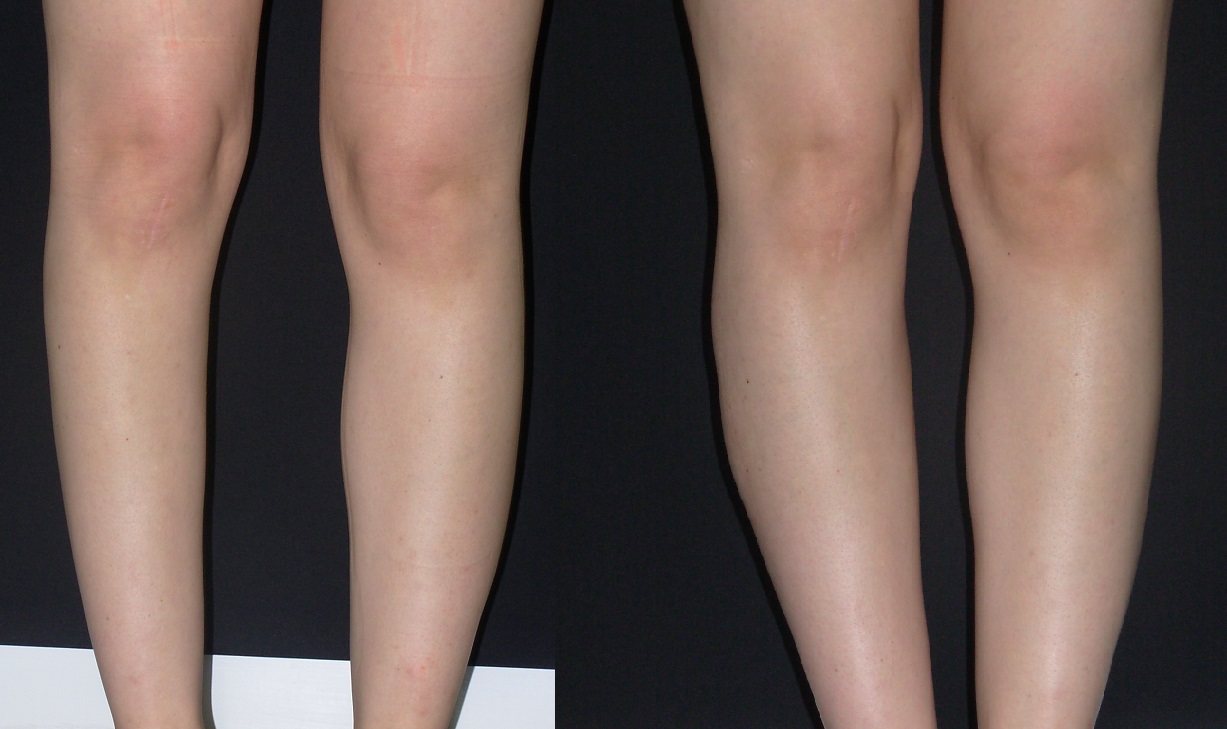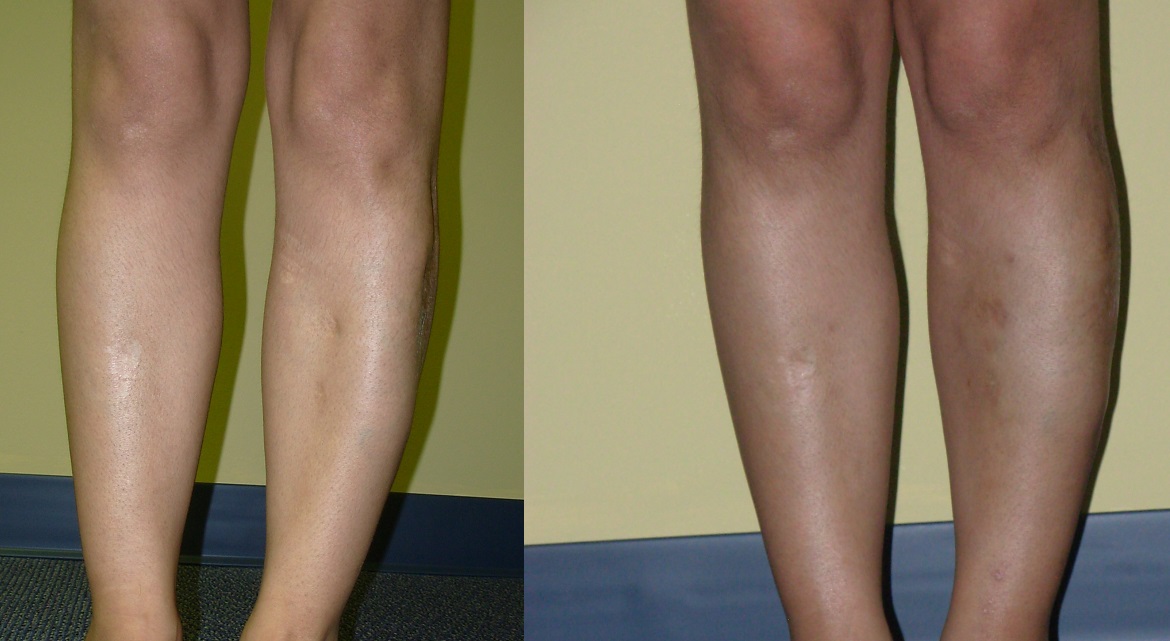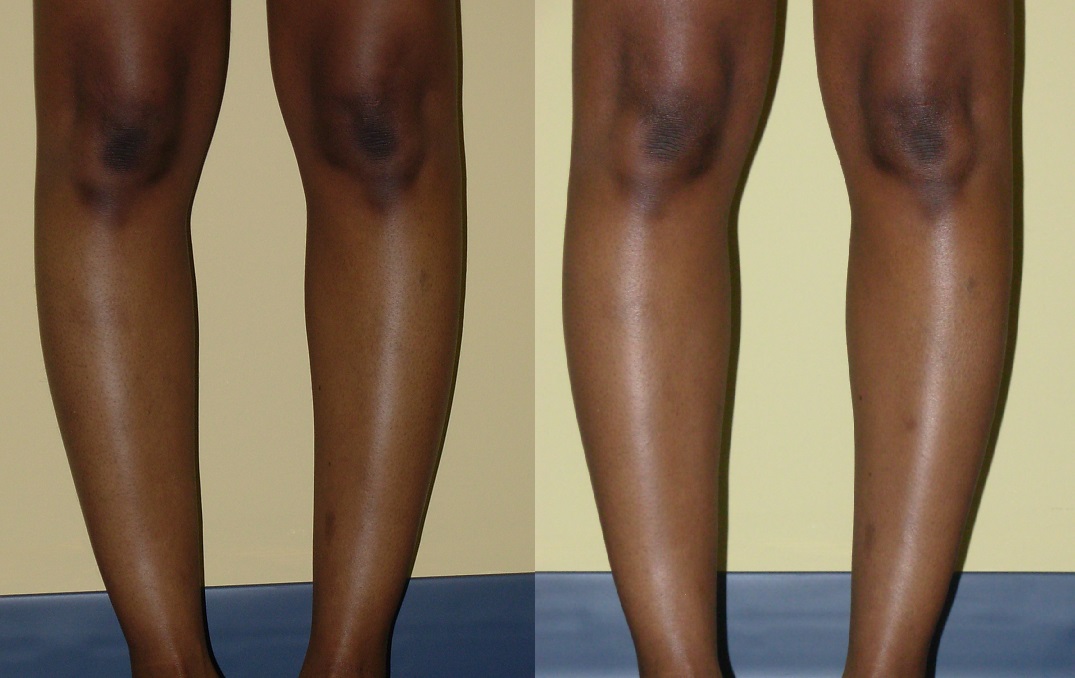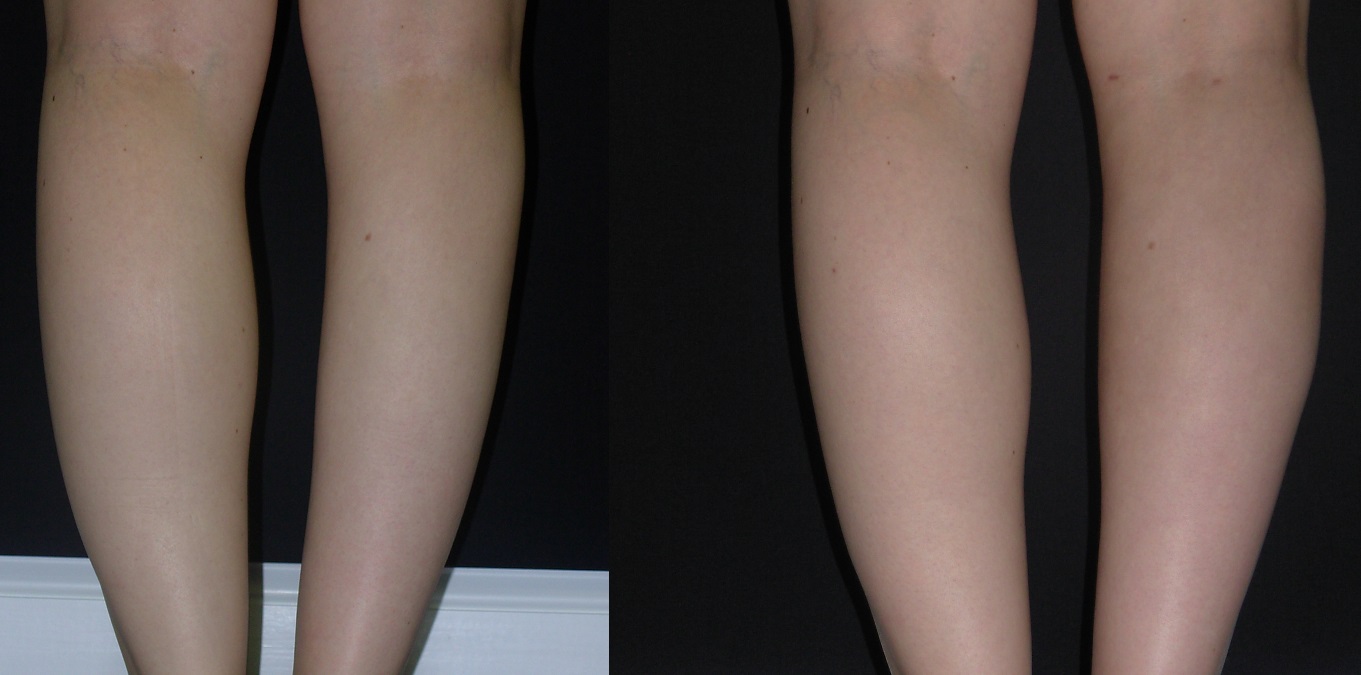What is Calf Augmentation?
Calf augmentation using implants is the most common procedure to enlarge and shape the lower legs. The implants are made of solid, soft silicone and are available in various sizes and styles to fit your individual needs. It is not uncommon for individuals with thin legs, “chicken legs” to be self conscious about their appearance. The implants add or restore contour and/or proportion to the legs.
Consulting with Dr Mezrow:
During the consultation, Dr. Mezrow will ask you about your particular concerns regarding your legs. This will help determine your expectations and determine whether they can be realistically achieved.
After obtaining a comprehensive medical and surgical history, Dr. Mezrow will perform an examination of your legs. One or two implants for each leg may be recommended to enhance either the inside, outside or both regions of the legs.
How is the procedure done/Where will I have scars?
Calf implant surgery is performed as an outpatient under usually general anesthesia. The procedure entails making a small incision behind each knee. A space or pocket is created, the implant is positioned overlying the existing gastrocnemius muscles and the incision is closed. The procedure typically takes approximately 1-2 hours to perform. Most patients recover within 1 to 2 hours after surgery and are discharged home. It is important to arrange for someone to drive you home after surgery and to stay with you for at least the next day or two.
Check out Before and After photos of our clients
What are the potential complications?
Fortunately, significant complications from calf implant surgery are infrequent, however, all surgery has risks. Dr. Mezrow will discuss with you, the risks, benefits and alternatives and answer all your questions
Some potential complications include infection that may require implant removal with replacement later, bleeding, implant shifting or misalignment that require additional surgery to reposition the implant, asymmetries, nerve injury, muscle damage, alteration in sensation and poor scarring. A complication, which delays healing and prolongs recovery, is more common in diabetic patients and those who smoke. Preoperative and postoperative instructions will be given to you by Dr. Mezrow in attempt to reduce the likelihood of complications and make you as comfortable as possible with the whole process. Smokers will be instructed to stop smoking 4-6 weeks prior to surgery and not resume smoking to reduce the risk of delayed healing, wounds, infections and compromised outcome. Aspirin, anti-inflammatory medications as well as agents that cause bleeding should be discontinued two weeks prior to surgery (or as otherwise instructed by Dr. Mezrow and your primary physician) to reduce the likelihood of bleeding.


